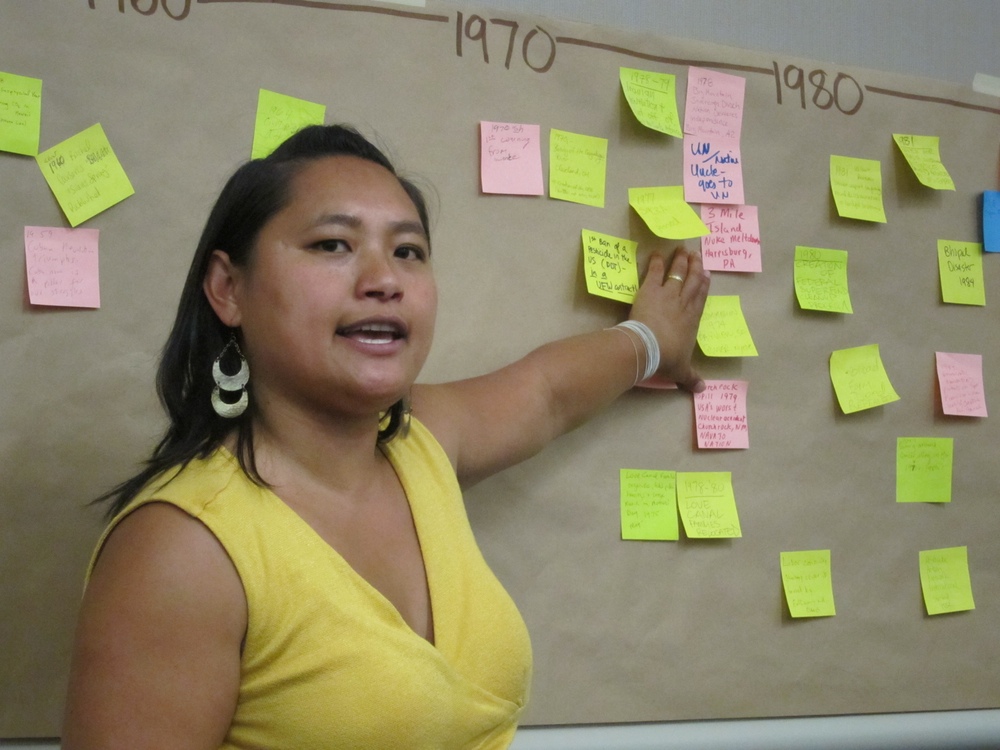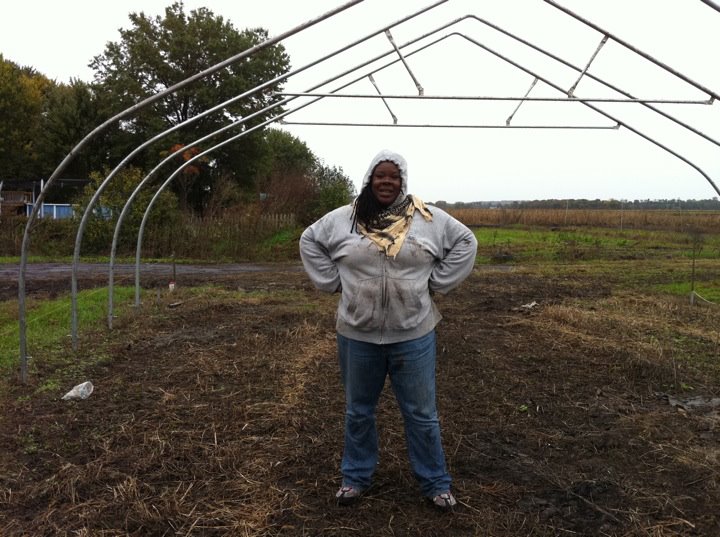Grist is proud to present the Change Gang — profiles of people who are leading change on the ground toward a more sustainable society and a greener planet. Some we’ve written about before; some are new to our pages. Some you’ll have heard of; most you probably won’t. Know someone we should add to the Change Gang? Tell us why.
 If you spend a little time Googling Mari Rose Taruc, the staff director of the Asian Pacific Environmental Network, you’ll find that the adjective most likely to be applied to her is “fierce.”
If you spend a little time Googling Mari Rose Taruc, the staff director of the Asian Pacific Environmental Network, you’ll find that the adjective most likely to be applied to her is “fierce.”
Taruc laughs delightedly when told this. “I’m a mother with two sons who are asthmatic,” she explains. “And I know that my environmental work is connected to that. It’s mama being protective of her kids — but also, seeing the broader social justice connection to what it means to protect my children and kids like them from the forces that are causing them to be sick.”
Taruc’s environmental awakening came early. When she was 8 years old, her family moved from the Philippines to the Central Valley town of Delano, Calif. She remembers an idyllic childhood neighborhood of rice paddies and guava trees harshly replaced by the brutal reality of life working as grape pickers in the heart of California’s agricultural breadbasket.
“I would see my parents and my sisters come home with rashes,” says Taruc, which she attributed to pesticide overuse. “For me, spending time in nature had been part of my upbringing. To have the environment become a negative poisonous place was a huge transition.”
Before starting college at U.C. Berkeley, she already knew she wanted to focus on environmental science. She was determined to “figure out what these pesticides are all about.” But life in the laboratory soon became dissatisfying. She also met some resistance from professors who weren’t yet seeing the connections between pollution and issues of race and class.
“I realized that I was not going to change the world from the laboratory. I was not going to be able to go back home and say that I am really making a huge difference in the conditions of farmworkers in the field.”
The time was the early ’90s, and she swiftly found herself part of a new generation of activists who were expanding the traditional concerns of the environmental movement into a passion for “environmental justice.”
“That environment is where we live, work, and play,” says Taruc. “And when you look at the equation of where environmental destruction and pollution are happening, you see that low income people of color are bearing the disproportionate brunt.”
Since graduating from college, Taruc has dedicated herself to organizing the people most affected by pollution into a grassroots force capable of going toe-to-toe with Big Oil. She cites a successful effort to stop Chevron from expanding its huge Bay Area refinery complex in 2010 as one of Asian Pacific Environmental Network’s greatest successes, along with helping to block the attempt to roll back California’s groundbreaking global warming law in the 2010 midterm elections.
The complete failure to achieve any progress on climate change or other environmental issues at the federal level doesn’t faze her.
“The climate justice critique of the big enviros at the federal level is that they put all their eggs in the one basket of passing cap-and-trade policy federally,” explains Taruc. “But our strategy has always been winning on the ground. Stopping Chevron from expanding, closing down power plants — you name it, on down the line. A one-time piece of policy legislation is not going to solve it all, but grassroots organizing campaigns do work. If anything, dysfunction at the federal level has motivated us even more to fight the good fight.”




